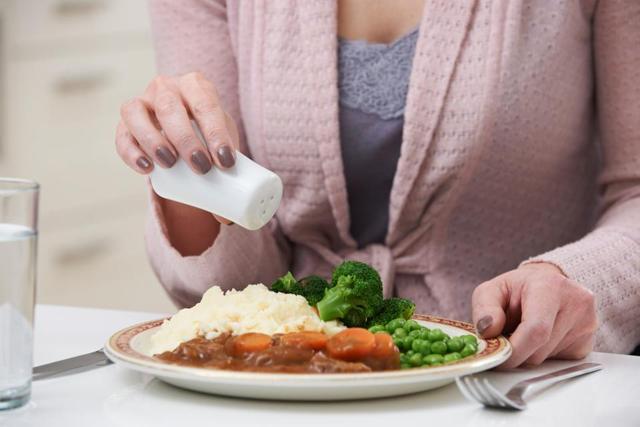Is it safe to add salt to your child’s food? A nutritionist gives her take
While iodine is necessary for the growth and development of children, excess salt can cause a number of disorders.
Putting together a child’s nutrition plan is like hopping through a minefield. Just ask any parent with young kids. We live in a digital age where people are bombarded with contradictory information from various sources, each seeming as credible as the next.

In the last few years, salt has emerged as an ingredient one needs to be careful of. Sure, it does have its benefits. “Salt – which consists of 40% sodium and 60% chlorine – is essential for keeping the body healthy and working,” says wellness expert and nutrition consultant Tripti Gupta. “Sodium helps balance electrolytes, maintain blood pressure, enhance muscle function and send messages along the nerves. It also regulates the water balance in the body, and helps absorb other nutrients in the small intestine.”

So, should you salt a child’s food? Yes, Gupta says, but in moderation. The recommended intake for children is two grams a day for age one to three, three grams a day for age four to six, five grams a day for age seven to 10, and six grams a day for age 11 and above. “Unhealthy eating patterns and excessive consumption of street grub, junk food, processed articles like papad, pickles, bread and bakery items, and maida products such as instant noodles and pasta, frequently cause their salt intake to exceed the prescribed limit,” she says.
This harms a child’s health in the long run – leading to hypertension, frequent headaches, poor focus and concentration, weak memory and hormonal imbalance. In some cases, multiple issues may also result in juvenile diabetes.
Gupta shares an overview on the harmful effect of excess salt intake in children:
High blood pressure: Salt is directly linked to blood pressure. Higher sodium intake leads to elevated blood pressure, which can result in strokes, heart attacks and other cardiac conditions as we grow older.
Obesity: It is indirectly related to numerous health problems, such as high blood pressure, diabetes and sleep apnea.
Kidney stone and diseases: High salt intake, when combined with calcium in the urine, results in additional load on the kidney – leading to kidney stones. A high salt diet can disrupt the function of the kidneys and cause high blood pressure. This, in turn, leads to kidney disease.
Water retention: Puffiness of the face, swelling of the feet, and pain in legs and calves are all related to heaviness caused by water retention due to excess salt. Many parents mistake such swelling for muscles generated through physical activity.
Follow @htlifeandstyle for more
Catch your daily dose of Fashion, Taylor Swift, Health, Festivals, Travel, Relationship, Recipe and all the other Latest Lifestyle News on Hindustan Times Website and APPs.
Catch your daily dose of Fashion, Taylor Swift, Health, Festivals, Travel, Relationship, Recipe and all the other Latest Lifestyle News on Hindustan Times Website and APPs.





